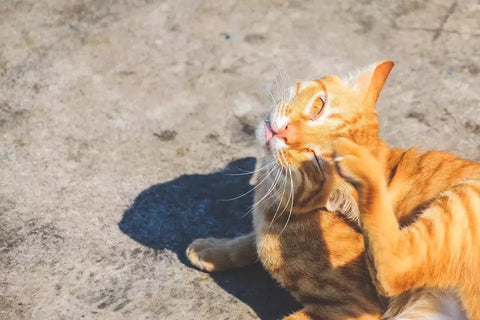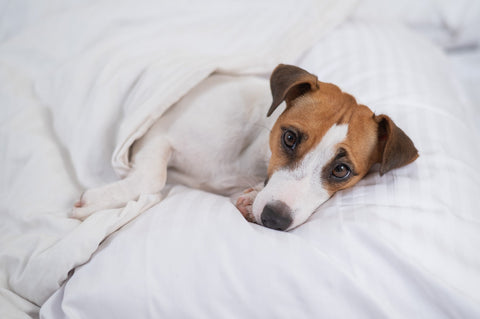How to care for your dog post surgery
A dog's post surgery can be one of the most trying times as a pet parent. The few days or weeks after the operation are the most uncomfortable moments for your dog. In most cases for your dog's post surgery, they'll always be sleepy, disoriented, will have small to no appetite. They also might experience some vomiting, poor balance and sometimes will have no control over their bowel movements and bladder.
Your dog will require your extra time and some really special care to recover faster.
"The few days or weeks after the operation are the most uncomfortable moments for your dog."
Overall, this can be a concerning and heartbreaking time as a pet parent, but don't worry, we are here to help you through it! Here are the things you can do to manage your dog's comfort post surgery and to help you and your fur-baby get through it stress free and comfortably:
Keeping your pup warm after surgery
As the anesthesia wears off, your dog will not be able to distinguish if their surroundings are cold or hot since their temperature sensors aren't always the quickest at getting back to normal. You have to help them out and keep them warm through the use of heating pads or by putting them in a cozy area with a reasonable temperature.
Avoid high places post surgery
Even if you think the anesthesia has long been gone, during your dog's post surgery, she will still feel a bit dizzy and might still not be able to stand and walk properly and may stumble from time to time. Avoid putting your pup in areas where there's a chance for them to fall - like on your bed or on the couch or upstairs.

Keep your pup isolated
Well, not forever (I know you're probably thinking, "Nooo!") but only for three or four days or when your dog is hopefully free from pain from surgery. You should make sure that your dog is far from any loud noises, animals or children at home; anything that can potentially irritate them. The surgery will make your dog snappy and easily stressed out and you don't want to be causing them more uneasiness than what they are already dealing with.
If you have other dogs at home and you fear that they will possibly lick your dog's wounds or play fight with them intensely, it's best to keep them away from the other dogs for 10-14 days or so (just enough time for the wound to close up).
Provide water and food
A few days after the operation, you will notice that your dog still won't have the appetite to eat or even drink water and that's okay. Don't force feed your pup, for this will cause vomiting. If ever you notice your dog is in search for food, you can offer them the amount and type of food indicated by the veterinarian.
Provide dog diapers and pee pads
Dog diapers and pee pads will be a handy post-surgery must-have since your dog will have no control of her bladder / bowel and she may pee or poop anytime and anywhere. These dog diapers and pee pads will help keep your dog from bathing in her own 'mess.'
Properly care for the surgery wound
Always follow your vet's instructions when cleaning your dog's wounds. Your veterinarian might advise you to change bandages a few times a day, put on some topical medicines or antibiotic creams on the wound and to always keep it dry to keep it from being infected.
Prevent your dog from licking the surgical wound
If your dog can reach her wound, you can opt to use an e-collar on them. It will only take a few seconds for your dog to lick and bite off the stitches to their wound and doing so will cause even more problems! So this is where you would rather be safe than sorry and not risk it.
Check for signs of infection
A little amount of blood and yellowish fluid is normal for your dog's wound site. But whenever there's a large amount of pus and blood and the area is swelling and does not seem to dry up and heal, it could be signs of an infection! Consult your veterinarian immediately, as this is a cause for concern.
Time, love and care is the best you can give for your dog recovering from surgery to avoid any complications in the future.
We know it's tough and sad to see your dog like this but all we can do is help them get through it. Have full control, make them comfortable in your home and give them everything they need for a fast recovery.









